
Shenzhen New - Credit: Yuan2003
Pitch your Startup, App or Hardware or post a Startup Event or Startup Job
Ed: Regular readers will recall numerous articles we have written on the importance of hardware startups moving to shenzhen for the first 6-12 months of their startup. In my day job we prototype hardware. I now have an engineer living in Shenzhen and we are turning round prototypes in 3-10 days vs 4-6 weeks locally and at much lower cost. Raising money for hardware startups is hard enough, wasting it by trying to build hardware in Australia where we don’t have sufficient manufacturing and assembly capability or component supply is just crazy.
Its not easy to get a foothold in China from the outside, relationships are much more important than in Australia so events such as these are critically important for new hardware startups.
Introduction
The rhetoric in the Australian start-up and business communities around “losing young, talented Australians to other competing markets” has been around for a long time, so when we announced a new partnership with the government of Shenzhen involving UNSW entrepreneurs I wasn’t surprised that we received a complaint.
The UNSW Startup Shenzhen event was a showcase of 6 start-ups chosen from a pool of close to 40 applicants, all with UNSW student or alumni team members, and all with China as an important part of their business or marketing strategies. With the generous prize of return airfares to Shenzhen and government led introductions to potential customers, partners and investors put up by SETRO (Shenzhen Economic & Trade Representative Office), the event attracted a diverse and high calibre group of companies which made for an entertaining evening for the 200 attendees. It was an interesting crowd, the event attracting people from the Sydney startup scene, people with business interests in China, academics and students.
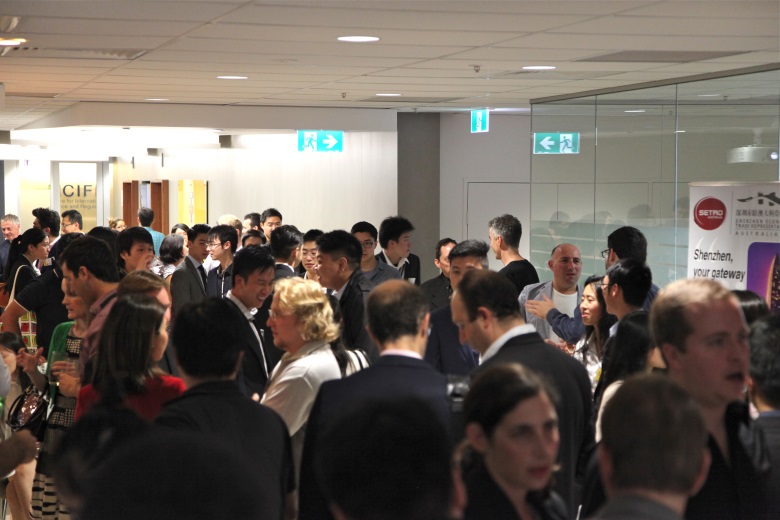
The complaint we received just prior to the event suggested that by holding such an event we were supporting the economy of China instead of our local NSW economy.
Short sighted?
Here is why this suggestion is short sighted.
In both the Australian start-up and business spaces, it is old news to many that we need to do more to encourage globally scalable business models – or as Steve Blank says start-ups must be Born Global or Die Local. The star examples from our start-up ecosystem are Australian companies that have penetrated foreign markets, and, in markets like China, this would be next to impossible to do without partnering with a person or organisation that is based ‘in market’ – the only alternative being to make regular visits with a localised product, service, sales kit and marketing campaign.
Relationship & Network is Critical
Remembering back to my days as a Regional Manager for China & Hong Kong for another large Australian university, even when the product itself was Australia and education in the English language, we could not have been effective without a network of partnerships with China based agent partners, staff representatives, Mandarin language marketing materials (and channels) not to mention the “head nod” from relevant government bodies.
This is one of the reasons why a relationship with a government organisation from such a strategically important city in China is an exciting thing for Australian start-ups.
Co-founder of WattBlock, Brent Clark, who delivered the winning pitch on the night commented, “The old school model was for talent to leave Australia and move to Silicon Valley. The new model is to build global businesses from day one from Australia, particularly with countries in similar time zones in Asia. Building global businesses means venturing into markets with greater opportunity than those presented on our home shore and this type of event provides the platform for Australian companies, with limited funding, to reduce the risk of entry into new markets.”
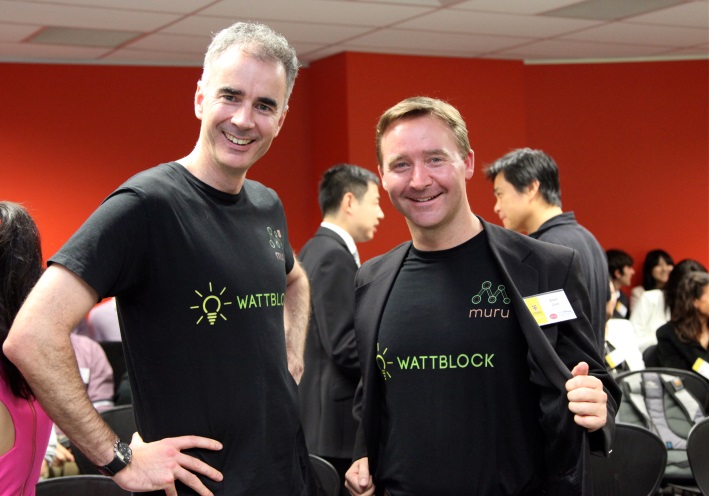
The other reason these events and other entrepreneur development services like this are unlikely to contribute to brain drain from Australia is that they actually work to attract entrepreneurial students to come and study at our universities. A big differentiator for UNSW, for example, is that it produces more CEO’s and start-ups than any other university in Australia. With more support services and unique events like these associated with Australian universities, talented and entrepreneurial students are more attracted to Australia as a study destination and as I have seen firsthand, the number of ‘international student turned Australian start-up co-founder’ category will grow and grow.
Pitch Competiton
Over and above this, another of the participating teams that pitched on the night,Meetisan, worked with the UNSW Student Entrepreneur Development team and NSW Trade & Investment to secure a grant based on the value the company is bringing to the local NSW economy.
Hua Fan, its co-founder, just happens to be a native of Shanghai who has moved to Australia to pursue both a PhD inPhotovoltaics and his entrepreneurial dream. I challenge you to find a better example of brain drain in reverse.
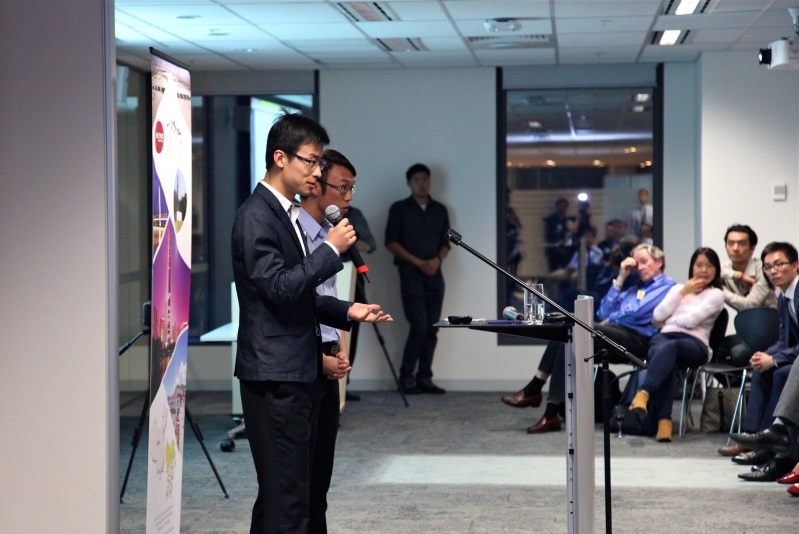
Theresa Lim, who completed both a Commerce degree and later an MBA at UNSW Business School, is the co-founder of PLAY2LEAD felt that “the reality is that the Australian market is simply not big enough for startups. The startup ecosystem works when Australian startups like Atlassian and Big Commerce make it big by truly being global, and like them, can have presence globally including their founding home base (Australia).
These startups that make it big will always be Australian at heart, and their founders give back to the ecosystem by being angel investors themselves here, and mentors to other Australian startups.”
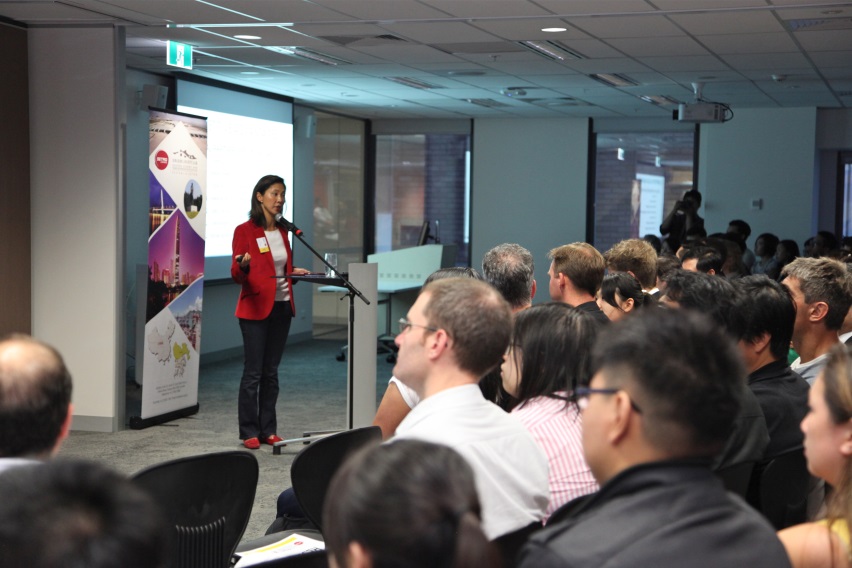
Different from most pitching events these days, not all teams pitching were what would be classified as a classic “tech start-up”. Project Bubba, founded by UNSW alumni David Cheng and Ivan Cheung together with current Masters of Financial Analysis student Tao Zhou is more of a small business than a start-up.
The team is taking on a massive problem relating to a depleting supply of shrimp in the China and is implementing a new technology related to more efficient and effective shrimp farming methods.
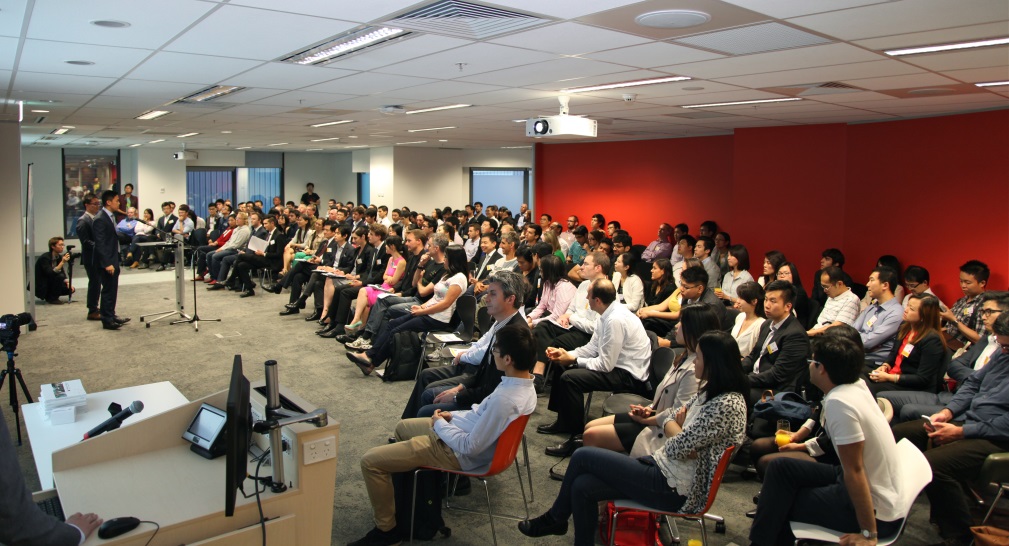
AGSM MBA student Eleanor Kollosovski pitched WL Diagnostics, with the support of UNSW Innovations SED service acquired a license to a technology available under the Easy Access IP license program and built a start-up that provides a non-invasive technology solution to enable early detection of inflammatory bowel disease – a life-long autoimmune condition of the gastrointestinal tract.
John Ng, who joined WL Diagnostics as Operations Director after being introduced to Eleanor via the UNSW SED services, found the event somewhat eye opening and sighted a valuable takeaway as, “information from the presenters about the scale, size and potential of doing business in Shenzhen, they are clearly larger, more productive and faster in their commercialisation abilities than Sydney. I previously thought that no Mandarin language skills means, no business dealings in China.”

Tripalocal was one of two teams currently part of the Muru-D accelerator program that made it to the final group of 6 to pitch on the night (the other being competition winners, WattBlock). Led by co-founder Jemma Xu, the team contained possibly the youngest entrepreneur competition wide, Backend Developer Joseph Hilsberg who completed part of his UNSW studies whilst still a high school student via the Open Learning platform.
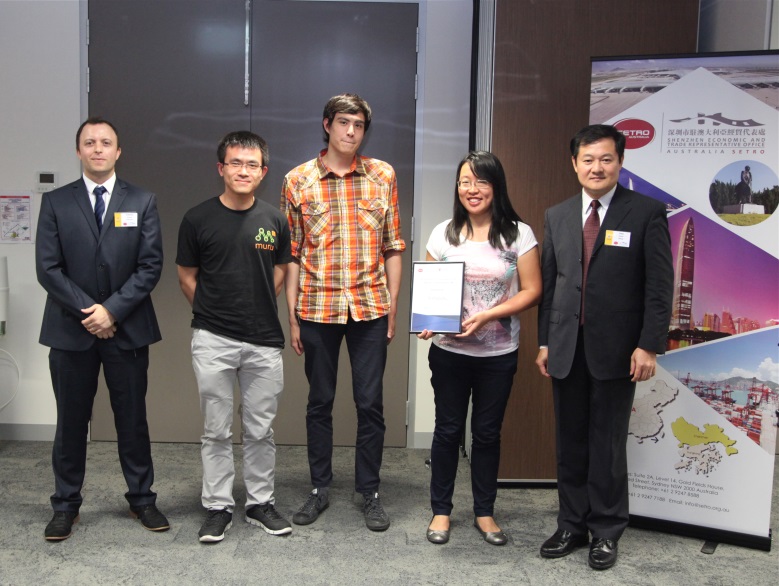
Our judging panel was diverse too with Sarah Tritsch (China cleantech consultant), Benjamin Chong (Partner at Sydney Seed Fund and Right Click Capital) and Victor Wang (Director, SETRO) bringing startup, localisation and Australia-China business expertise in their advice to each team. The night was powered by UNSW Innovations Student Entrepreneur Associate, Melissa Ran, who fittingly is also a China born entrepreneur turned Sydney start-up mentor.
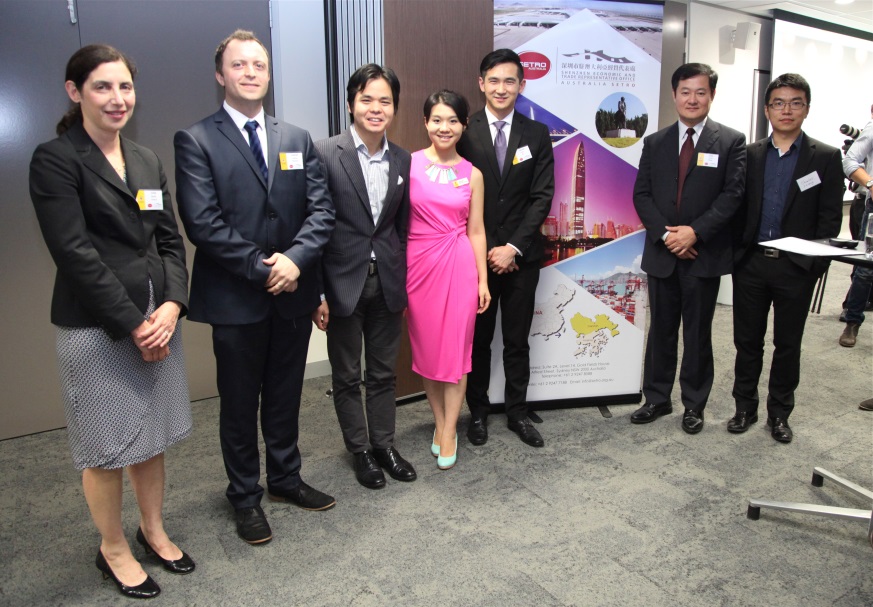
Congratulations again to the winners, WattBlock, who will be flying to Shenzhen in April next year to connect with local government officials, potential partners and future customers – a fine example of Aussie businesses thinking globally. Watch this space!
Pitch your Startup, App or Hardware or post a Startup Event or Startup Job